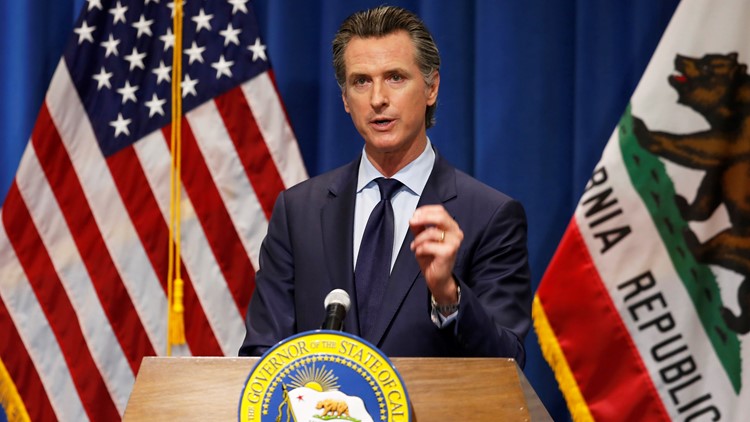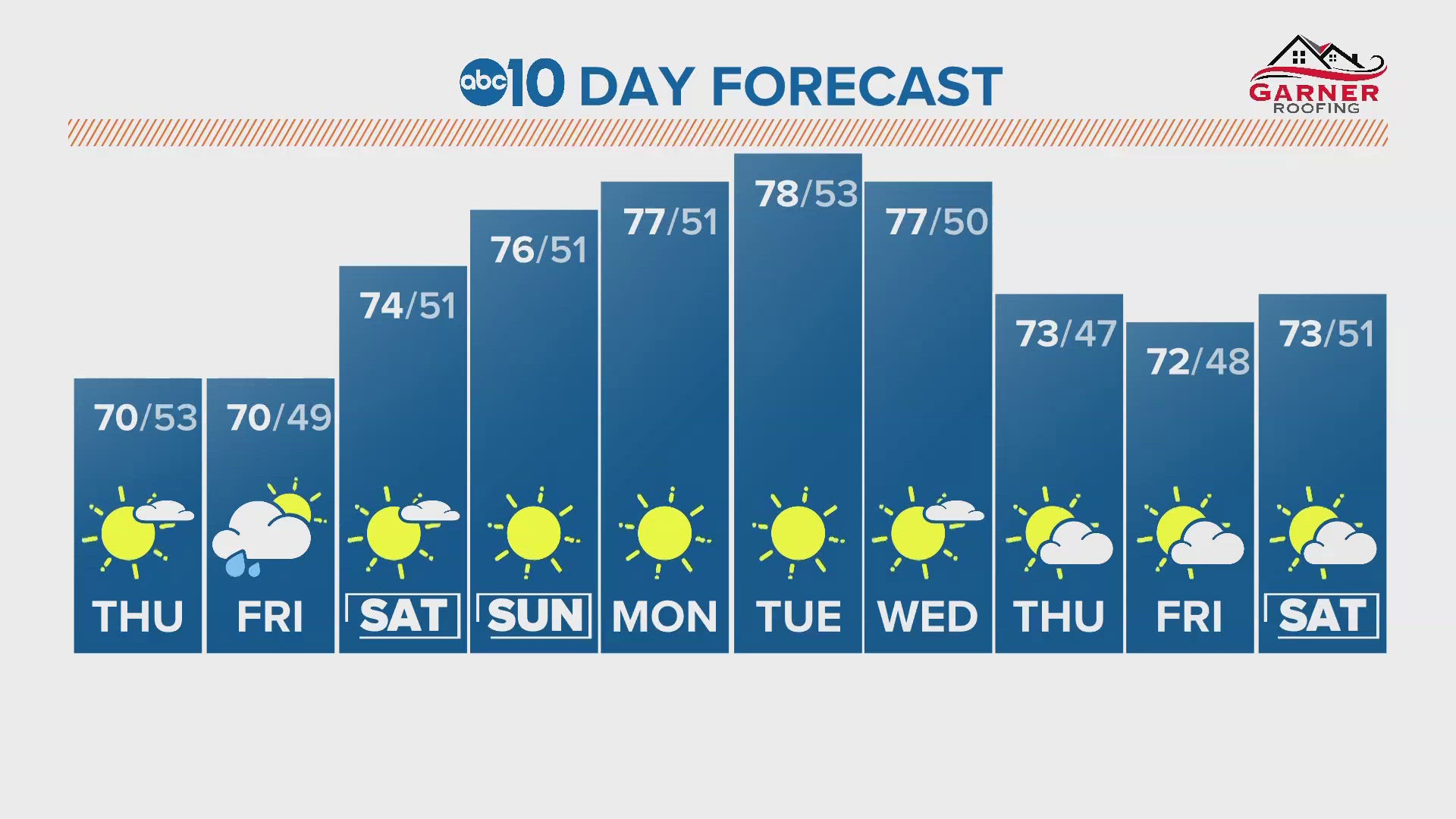SACRAMENTO, Calif. — California Gov. Gavin Newsom revealed his state budget proposal and it calls for using $15 billion of surging tax returns into economic relief.
Newsom's first budget included a $21.5 billion surplus. His second budget had a $54.3 billion shortfall. In 2021, Newsom must navigate a coronavirus pandemic that has had an uneven impact on the state's economy.
His $227-billion plan, released Friday, comes as he notes the state is facing “a challenge the likes of which we never expected" due to the coronavirus pandemic.
Newsom said the proposal was framed around "broad-based economic recovery." He highlighted five urgent needs the budget addresses: vaccinating people against coronavirus, reopening schools, supporting small businesses, getting money into people’s pockets, and preparing for wildfires, for which he includes $1 billion.
It marks a sharp turn as lawmakers were forced to make cuts in the summer to make up a shortfall in the midst of the pandemic.
"We are in a much better fiscal footing than anyone could have imagined even a few months ago," Newsom said. "Let us be wise and thoughtful about how we make these investments."
Newsom's budget plan would also open an option for taxpayers to receive some money back: the governor estimates his budget could exceed something called the Gann Limit, which measures government spending per person to ensure it is under 1978-79 levels (adjusted for inflation).
Newsom said that as it stands now, his budget would go over by roughly $102 million, meaning the government would have to send rebates to taxpayers. However, with the May revision still ahead, this may not happen for the 2021-22 budget.
The proposed budget also focused on accelerating job growth in the state as the coronavirus pandemic continues to put millions out of work. Newsom called for a $4.5 billion Economic Recovery Package, some of which has already begun with small business grants and fee waivers.
If approved, it would include immediate action of $575 million in small business grants, in addition to the $500 million already going towards those grants right now. They can be anywhere between $5,000 to $25,000.
The budget for small business support also includes $71 million in fee waivers for businesses like restaurants, barbershops, and salons and more tax credit support for job creators.
"A few thousand bucks, a few hundred bucks could be the difference between keeping those lights on or turning them off permanently," Newsom said.
John Kabateck, the California Director for the National Federation of Independent Business, a group that represents about 15,000 small businesses in California, believes this is finally a hopeful step forward.
"Because right now, they don't have a tree that they can pluck those dollars off of but the most important thing is with this budget and the expanded grant program, the Governor is providing some more trees out there on main street that people can actually have some money and money they don't have to pay back," Kabateck said.
But for business owners like Ray Ballestero of Alaro Craft Brewery and Restaurant in Midtown, who has been operating under a daily loss as they are only able to do to-go orders, says that's just not enough.
"It's not a realistic solution to the problems we're facing right now," Ballestero said. "Even if we qualify for the biggest grant we could under this new proposal, that's $25,000, we lose $25,000 a week by being closed down."
He said he would rather have the opportunity to reopen his business in a safe capacity.
“I’m here not to provide a tweet—144 character response—but a comprehensive response that’s not just about tax credits, not just about traditional metrics to which some people see the world, but more comprehensively about creating an ecosystem, creating a climate for entrepreneurialism,” Newsom said.
During his budget presentation, Newsom also broke down his “Safe Schools For All” plan. It has already faced strong objections from teachers and many of the state’s largest school districts after it was previewed last week. They say the plan does not include sufficient funding to ensure California classrooms are safe as COVID-19 case rates skyrocket. They also argue it risks deepening the inequities that the pandemic has laid bare.
California's revenue collections have increased despite the pandemic because the state's tax code relies on wealthy earners who have been less affected. The result is what the nonpartisan Legislative Analyst's Office calls a one-time budget windfall of about $26 billion. Newsom says that in turn, much of this money would be going to one-time programs and other opportunities.
Earlier this week, and as part of his budget proposal, Newsom announced low-income Californians with annual incomes of less than $30,000 would get a $600 payment from the state. The pool of eligible people includes some undocumented immigrants who file taxes with the state. Roughly 4 million people would be eligible for the payment, for a total state cost of $2.4 billion.
The governor said that the state would be basing this stimulus off of the Earned Income Tax Credit program that has already seen nearly $1.2 billion go to families in need.
Newsom is also asking the Legislature to extend a moratorium on evictions. In August 2020, the Governor and Legislature enacted AB 3088, which protected residents from evictions until Jan. 31, 2021, as part of a public health measure during the pandemic. Under this proposal, California renters who are experiencing financial hardship related to the pandemic and pay at least 25% of their monthly rent cannot be evicted for unpaid rent. Newsom said during his budget proposal that this was a top priority and that federal funds were coming in from the recently passed stimulus bill that will be devoted to this issue.
Continue the conversation with Lena on Facebook.



